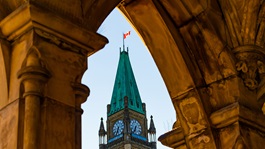Introduction
On 21 January 2025 the South Australian Government released the draft Biodiversity Bill 2025 (SA) (Biodiversity Bill). The Biodiversity Bill is open for public consultation until 18 February 2025.
In this article we provide an overview of the Biodiversity Bill which proposes to:

The Biodiversity Bill defines biodiversity as the “variety of life forms represented by plants, animals and other organisms and micro-organisms, the genes that they contain, and the ecosystems and ecosystem processes of which they form a part.”
The Biodiversity Bill will, if passed be one the most significant overhauls to the legislative protection of biodiversity and flora and fauna in South Australia in decades. The Biodiversity Bill will affect any individual, company, or government agency that is required to obtain any permits or approvals related to impacting or clearing native vegetation, threatened ecological communities or species, and wildlife.
General duty - biodiversity
The Biodiversity Bill proposes to introduce a general duty that stipulates “an entity” must not undertake an activity unless the entity takes reasonable and practicable measures to prevent or minimise harm to biodiversity.
The Explanatory Guide to the Biodiversity Bill indicates the duty will encourage individuals, businesses and governments to take reasonable prevention or minimisation measures before undertaking activities that could harm biodiversity.
While this is the first time a ‘general biodiversity duty’ has been proposed in South Australian legislation, the proposed duty is akin to general duties incorporated in:
- The Environment Protection Act 1993 (SA) which requires individuals and companies undertaking activities to take reasonable and practicable measures to prevent or minimise environmental harm.
- The Landscape South Australia Act 2019 (SA) (Landscape Act) which requires a person to ‘act reasonably’ in the management of natural resources within South Australia, including the protection of biodiversity.
In considering the measures that must be taken to meet the duty, several factors are taken into account, including:
- The likelihood of harm arising and the potential for the harm to have a cumulative effect.
- The extent to which an entity knows or reasonably ought to have known, or reasonably foresaw the likelihood of the harm eventuating and ways to eliminate or minimise the harm.
- The availability, suitability and practicability (including the cost) of measures to prevent or minimise harm.
Under the Biodiversity Bill, the regulations may stipulate some activities that are not subject to the general duty.
A failure to comply with the ‘general biodiversity duty’ may result in a compliance, reparation or other order being issued.
Single permitting regime
The Biodiversity Bill proposes extensive reforms to the process any project proponent, needs to follow to obtain approvals to clear or remove native vegetation.
At present in South Australia, permits to remove native vegetation must be obtained pursuant to the provisions the Native Vegetation Act 1991 (SA) and permits related to wildlife, including hunting must be obtained under the National Parks and Wildlife Act 1972 (SA).
The Biodiversity Bill proposes to repeal the current Native Vegetation Act 1991 (SA) and the provisions relating to wildlife in the current National Parks and Wildlife Act 1972 (SA). This means that if the Biodiversity Bill is passed, all permits, licences and consents relating to native vegetation, critical habitats, threatened ecological communities and wildlife will be governed by a single piece of legislation being the Biodiversity Bill which will hopefully make for more streamlined decision making.
The Landscape Act will remain in place, with some amendments proposed to ensure the Landscape Act and the Biodiversity Bill are consistent and aligned with one another.
Mitigation hierarchy
The Biodiversity Bill requires the mitigation hierarchy to be applied in relation to clearing native plants. This requires proponents of activities that may impact native plants to avoid, minimise, rehabilitate or restore ecosystems, and where this isn’t possible to offset the impact from clearing native vegetation.
The mitigation hierarchy is an internationally recognised tool for addressing biodiversity impacts which prioritises prevention to avoid and minimise biodiversity impacts to the maximum extent practicable, and is currently already applied through environmental assessments under the Environment Protection and Biodiversity Conservation Act 1999 (Cth).
Other notable provisions
Other notable provisions in the Biodiversity Bill relate to:
- Establishing a Biodiversity Restoration Fund (the payment of penalties and fees will be made to this fund and may be applied to re-establishing, enhancing, preserving, managing or researching native plants or for other purposes related to biodiversity).
- Establishing a:
- Biodiversity Council (to provide advice to the Minister and manage the Biodiversity Restoration Fund)
- Native Plants Clearance Assessment Committee
- Scientific Committee
- First National Expert Biodiversity Committee to provide advice to the Minister on the management of biodiversity from a First Nations’ perspective
- Introducing new processes for listing threatened species, threatened ecological communities and ecological entities which harmonises the listing of nationally threatened species.
- New enforcement tools for ensuring compliance with the Biodiversity Bill such as compliance and restoration orders, wider standing for people who can commence civil enforcement proceedings (such as First Nations people where the offence relates to a culturally significant biodiversity entity) and increased criminal penalties.
- Recognising culturally significant entities – being native species or ecological communities to which all First Nations people attribute cultural value, and which are critical to their relationship with Country.
Next steps
We recommend that all proponents who will be undertaking activities that will potentially harm biodiversity and that may require permits, licences and consents consider the proposed requirements in the Biodiversity Bill and how those requirements will impact their proposed activities including how compliance with the general duty may be achieved.
Public consultation on the Biodiversity Bill closes on 18 February 2025.
If you are interested in making submissions, please contact a member of our Environment and Planning team.









